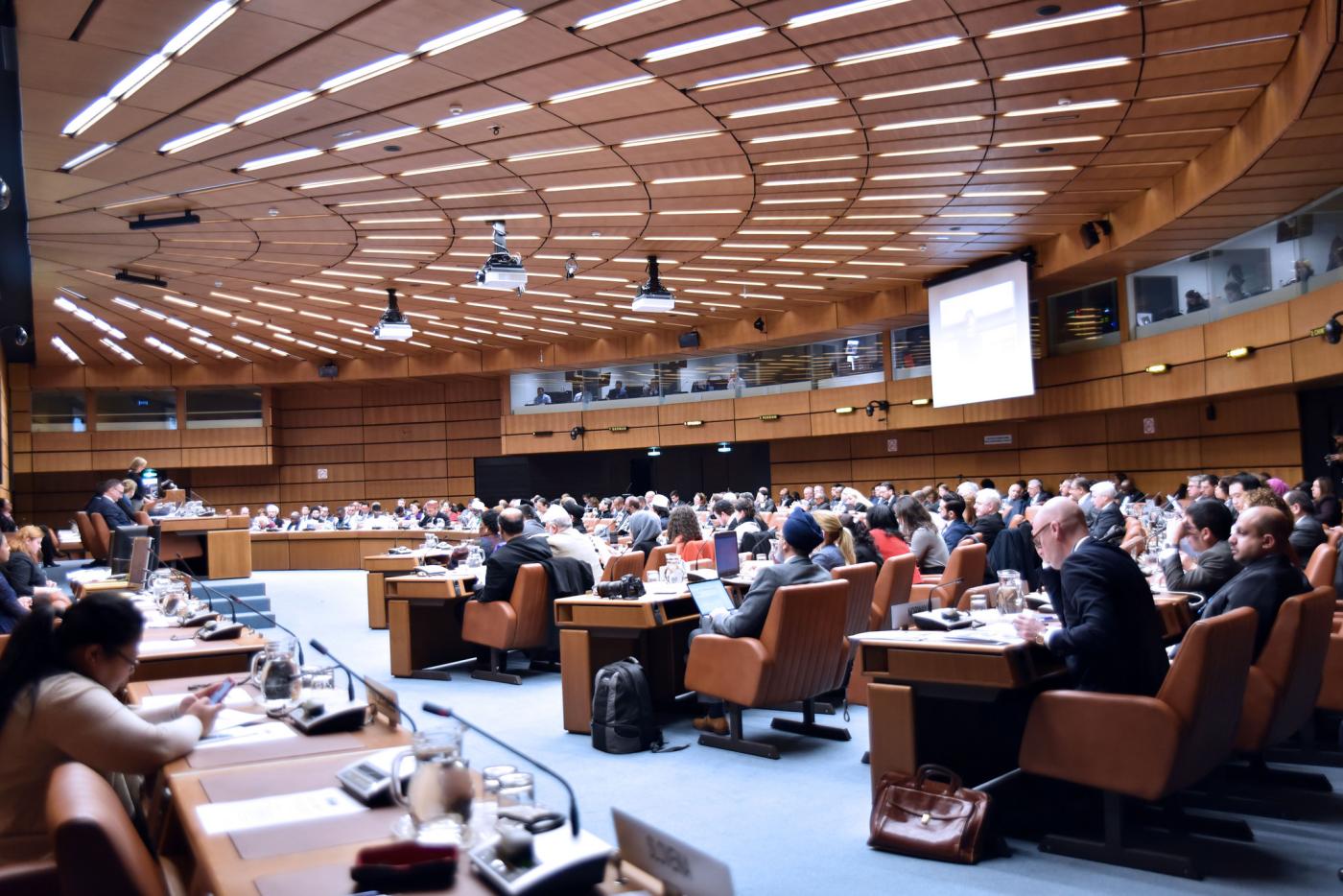Another step towards preventing incitement to violence that could lead to atrocity crimes was taken on Tuesday this week, when religious leaders and other actors gathered for a three-day meeting in Vienna to discuss the implementation of the Plan of Action for such prevention.
The Plan of Action, which was launched by the UN secretary general in July last year, is the outcome of a process which began with a first consultation on this issue, held in Fez, Morocco in 2015.
The first day of the Vienna meeting focused on concrete measures to implement the Plan of Action at national and local levels. Wide-spread agreement was expressed among the more than 100 participants that engaging youth must be a key focus in preventing violence and advancing human rights, justice and peace everywhere.
After welcome notes from Ambassador Christine Stix-Hackl and high-ranking officials from the organizing bodies: the United Nations, World Council of Churches, Network for Religious and Traditional Peacemakers and KAICIID International Dialogue Center, sessions evaluating the Fez process and focusing on implementation of the Plan of Action followed.
In his welcome remarks, WCC director of the Commission of the Churches on International Affairs, Peter Prove, emphasized the process of implementation as the most critical step towards concrete results of the Fez process. He also underlined that the challenge and the responsibility that the Plan of Action lays before religious leaders and actors is as urgent and salient as ever.
”There is certainly no room for complacency in a context in which the extremist ideologies that gave rise to extremist groups continue to be promoted,” Prove explained.
He underlined the WCC’s long experience of positive engagement with different faith groups that promote dialogue and peace and welcomed the growing interest from the UN in collaborating with faith-based organizations.
The UN Population Fund’s senior advisor on culture, Dr Azza Karam, who moderated the session on implementation of the Plan of Action, pointed out that diligent and sustained engagement of religious leaders can make a difference:
”It is inspiring to see how much there is a sense of community and shared purpose, which to me is a testament to the process of systematic convening. I expect more collaboration and if initiatives materialize, in a years time we will have a resource bank on religion and peace building, a significant cadre of well-trained religious mediators and a number of curriculae of interfaith co-existence”, she concluded.
Implementing the Plan of Action entails a number of challenges, where local contexts and grassroots engagement will determine how the plan best can be adapted to gain maximum impact.
”The plan already is the distillation of the experiences of all participants in the Fez process - a snapshot of best practice. The plan must inspire, build on and strengthen the work that is already going on, in which the support and participation of government authorities will be critical”, Prove concluded.
On day two, commitments were made by many actors present to implement the Plan of Action through a variety of means, individually and working in partnership, building on existing initiatives and networks. These commitments, which were made based on discussions along both thematic and regional lines, will be included in the outcome document.
Among the main points agreed upon during the meeting were the need to map existing initiatives that can contribute to implementing the Plan of Action; collaborate on the elaboration of a covenant for faith actors towards the realization of the Plan of Action; develop capacity-building activities for religious leaders and actors; disseminate and share curricula for inter-religious coexistence; and include youth and women in all activities.
The meeting also resulted in the establishment of a Steering Committee.
United Nations Secretary-General launches first action plan for religious leaders to prevent incitement to violence (WCC press release of 17 July 2017)






